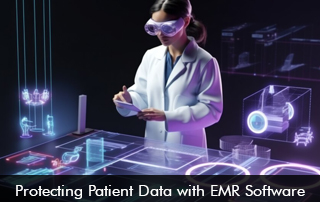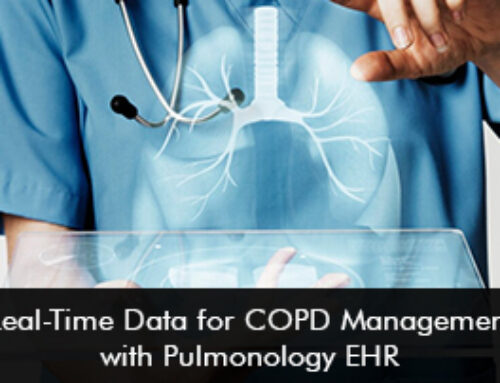EMR software has revolutionized the way health information is stored, accessed, and shared. However, with the advancement of technology comes the increased responsibility of safeguarding sensitive patient information. In this article, we will explore how EMR software can be utilized to protect patient data.
The Significance of EMR Software in Healthcare
EMR software has become an integral tool for healthcare providers. It offers a multitude of benefits including streamlined workflows, improved patient care, and enhanced data analysis. However, the most critical function of EMR software is maintaining the confidentiality and integrity of patient health records.
EMR software is a digital version of a patient’s paper chart and contains the medical and treatment history of patients within one practice. It allows for the tracking of data over time, easy identification of patients due for preventive visits and screenings, and monitoring of patients’ measurements. It also improves the overall quality of care within the practice.
The Challenge of Data Security in EMR Systems
With the transition to digital records, healthcare providers must be vigilant about cybersecurity threats. Breaches can lead to unauthorized access to patient information. This can have dire consequences including identity theft, financial loss, and compromised patient trust.
Common Threats to Patient Data
- Unauthorized access due to weak passwords or stolen credentials
- Phishing attacks aimed at tricking staff into revealing sensitive information
- Malware and ransomware that can encrypt data, making it inaccessible
- Insider threats from employees mishandling or intentionally leaking data
Specialized EMR Software for Enhanced Security
Specialized EMRs offer tailored security measures that cater to the unique needs of these disciplines.
Gastroenterology EMR Software
Gastroenterology practices handle a wealth of sensitive patient data, from routine screenings like colonoscopies to managing chronic conditions such as Crohn’s disease or ulcerative colitis. Gastroenterology EMR software often includes advanced encryption and access controls to ensure patient data related to these sensitive procedures is kept secure.
Neurology EMR Software
Neurology practices deal with complex conditions like epilepsy, Parkinson’s disease, and multiple sclerosis. Neurology EMR software is designed to manage the detailed records and imaging studies these conditions require. Security in such systems is paramount, as they hold vast amounts of confidential information that must be protected against unauthorized access and cyber threats.
Best Practices for Protecting Patient Data with EMR Software
Adopting EMR software is just the first step in protecting patient data. Implementing and adhering to best practices is essential for ensuring the highest level of security.
Regular Software Updates and Patch Management
Keeping EMR software up-to-date with the latest patches is crucial for protecting against known vulnerabilities. Software providers regularly release updates to address security issues, and timely application of these updates can prevent potential breaches.
Strong Authentication Protocols
Implementing strong password policies and two-factor authentication can significantly reduce the risk of unauthorized access. Biometric authentication is also gaining traction as a robust security measure within EMR systems.
Role-Based Access Control (RBAC)
RBAC ensures that healthcare staff can only access the patient data necessary to perform their job functions. This minimizes the risk of insider threats and accidental exposure of sensitive information.
Regular Staff Training
Human error is often the weakest link in data security. Regular training sessions can educate staff on recognizing phishing attempts, following proper data handling procedures, and understanding the importance of confidentiality.
Secure Data Backup and Disaster Recovery Plans
In the event of data loss due to system failures or cyber-attacks, having a secure backup and a comprehensive disaster recovery plan can ensure patient data is not permanently lost and services can be quickly restored.
Legal Compliance and EMR Software
Healthcare providers are legally obligated to comply with regulations such as the Health Insurance Portability and Accountability Act (HIPAA) in the United States. EMR software can aid in compliance by providing audit trails, controlling data access, and encrypting patient information both at rest and in transit.
HIPAA sets the standard for protecting sensitive patient data. EMR systems that are HIPAA-compliant help ensure that all necessary safeguards are in place to prevent unauthorized access to patient information.








